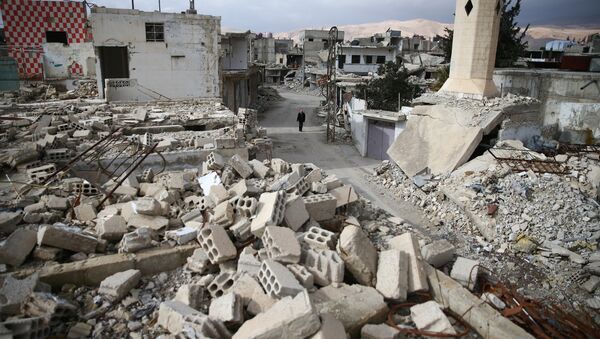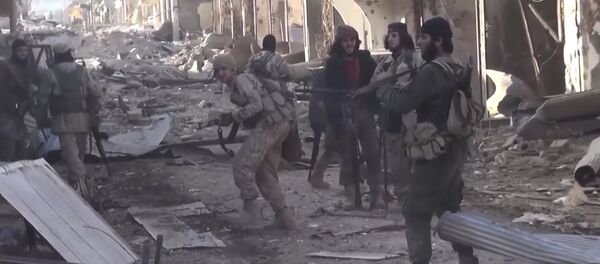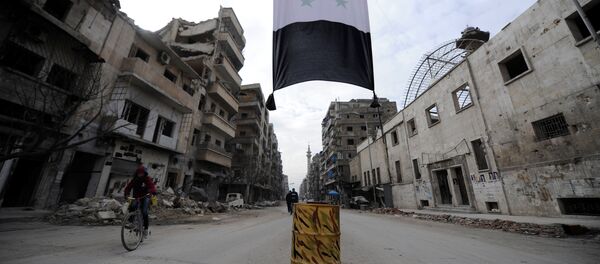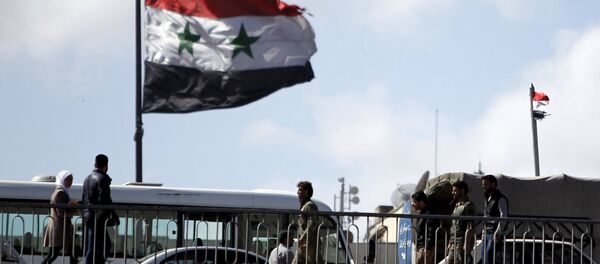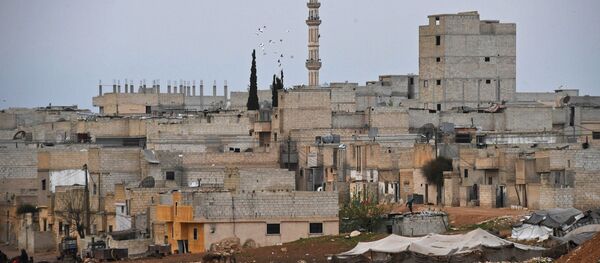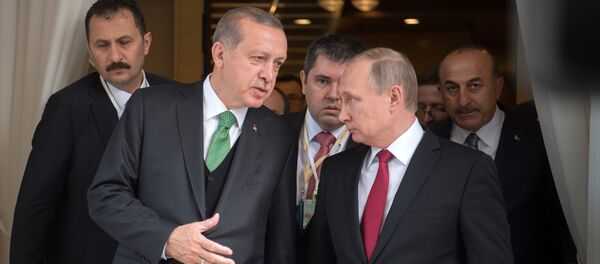Russia's online newspaper Vzglyad called it a "fundamental change" in Moscow's position and questioned whether it means that the widely-discussed "great deal" between Russia and the US has been finally reached.
"The President [Erdogan] and I operate on the premise – I already mentioned this – that the Syrian crisis can be resolved exclusively through political means. However, to set this political process in motion, it is necessary to ensure a ceasefire. As the countries that made the greatest contribution to this formula and the practical side of ending hostilities, Russia, Turkey, and Iran have never stopped thinking about ways to bolster the ceasefire," Vladimir Putin said when answering a question about the creation of the so-called "safe zones" or "de-escalation" zones in Syria. He explained that such zones might become one of the mechanisms that would guarantee an end to the bloodshed and create conditions for the initiation of a political dialogue.
Later on Wednesday, the Syrian Foreign Ministry said that Damascus supports Russia's proposal regarding de-escalation zones.
"For the sake of ending the bloodshed among the Syrian people, beginning with the readiness for any proposals conducive to the return of the Syrian people to a peaceful life… The Syrian Arab Republic supports Russia's proposals for creating zones of reduced tensions and pledges to implement the ceasefire agreement signed on December 30, 2016," the Ministry said in its statement.
On Thursday, the three Syrian ceasefire guarantor states, Russia, Turkey and Iran signed the de-escalation zone memorandum during the fourth round of peace talks in Astana and agreed to set up a working group on drawing up the maps of proposed safe zones in Syria.
On May 1, a source in the Syrian opposition delegation told Sputnik about Russian proposals on a settlement in Syria. Documents received from the source state that Russia proposes the creation of four zones for reducing tension in Syria: in Idlib province, in the rebel-controlled pocket north of the city of Homs, in Eastern Ghouta (northeast of Damascus) and in the country's south.
The newspaper recalled that projects to create so-called "no-fly" zones in Syria had previously been proposed by the Obama administration, however they have not been implemented. Russia was "deadly against" such initiatives. Many in the US national security circles warned of the risk of a confrontation with Russia in Syria over these initiatives.
"The creation of such zones has been a longstanding idea of ours and our task was to drag our partners into it, who play key roles in the settlement of the Syrian conflict," he told the newspaper.
"Hence the eagerness of our two key partners, the US and Turkey, to support this idea is a very positive sign. However we should not cherish any illusions that it is a key to solving all of Syria's problems. I think that it is just a beginning," he explained.
The Russian Senator does not think that Russia will now distance itself from President Assad.
"According to my information, President Assad has supported the idea of the four zones and it is being done with his agreement. We can't do it otherwise. Russia is present in Syrian at the invitation of the country's legitimate government and it can't operate there without agreeing to its actions and positions with Assad," he said.
Meanwhile Sergei Karaganov, a political scientist who heads the Council on Foreign and Defense Policy and the Department of World Economics and World Politics at the Higher School of Economics said that by having won politically in Syria and by stopping the chain of regime changes in the region, Russia now has very strong positions for further agreements.
"Keeping Assad at power is not our goal. Our goal is to set up lasting peace in Syria," he told the newspaper.
The political analyst did not rule out that the US can make certain concessions to Russia in the future, in Ukraine, among others.
"Everything is intertwined in this world. If there are certain joint capital investments, the players won't risk losing them. The Americans will be more cautious than at other places, and not only in Ukraine," he suggested.
In a separate comment on the issue, Russian military analyst Alexander Perendzhiev, an associate professor from the Faculty of Political Sciences and Sociology at the Plekhanov Russian University of Economics told Sputnik that there is a certain danger of turning these four safe zones, which would be under the control of foreign states, into a sphere of influence.
He noted that the American troops are still present in Germany and believesthe German government is under the control of the US.
Hence, he concluded, the allies in the fight against international terrorism should now remember this experience in order not to repeat it on the territory of Syria.

